The strange sadness of Algiers
We Built This City is a limited series of photo essays by The Continent on African cities. This week, we are in Algiers with Fethi Sahraoui.
Words and photos: Fethi Sahraoui
Albert Camus, born in Drean, Algeria, is one of the world’s most-read French writers. But in Algeria, where I went to school, his name was not on the curriculum. Censorship or denial? Life is absurd indeed.
I don’t remember when I first came across Camus. Was it in the long conversations about cinema and literature that we had around delicious food growing up at my grandma’s place?
It might have been through a photograph. That iconic Camus portrait by Henri Cartier Bresson.
Two years ago, during a residency in the Baltic Sea, the University of Corte gave me a simple yet very complex assignment: interpret Camus’s essay Nuptials (Noces-L’été) through photography for its translation to the Corsican language.
I was tempted by the chance to photograph my adoptive city Algiers, and the Roman ruins of Tipaza, which I had yet to see but had read about. But I also had many tormenting questions about the writer, myself and photography as a medium.
Camus didn’t extensively discuss photography but his reflections on the illusion of absolute truth challenge us on the possibilities and limitations of the medium.
Photography works in the same way: showing us reality, but just part of it. How do we, for example, visually narrate a place like Algiers while away from it, homesick in exile or on a trip?
I had no intention of finding a satisfying answer, but asking the question was already an important step for my practice.
Reality is complex and constantly evolving. The intricacy of my mission resided in avoiding a contrast between the past and present. It goes without saying that Algiers’ social fabric radically changed after the country’s independence in 1962. It felt irrelevant to chase nostalgia. I preferred to focus my visual narrative on the present.
In Tipaza, I saw joyful people, families, and couples on vacations under the burning sun of the ruins, but the image that stayed with me most was a moment for which photography was inappropriate: a man sobbing like a small child. Would you write about this or would it be just an insignificant life event to you?
In the end, this conversation with Algiers is a work in progress. A legitimate excuse to question my relationship with Camus, Algiers and photography itself as a medium.
An introspection that I have always fled from.

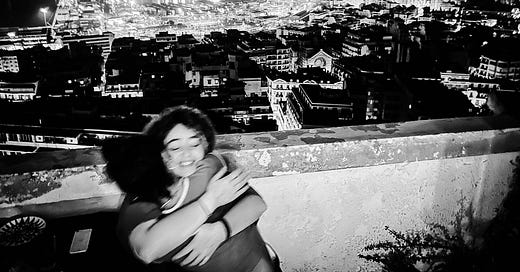



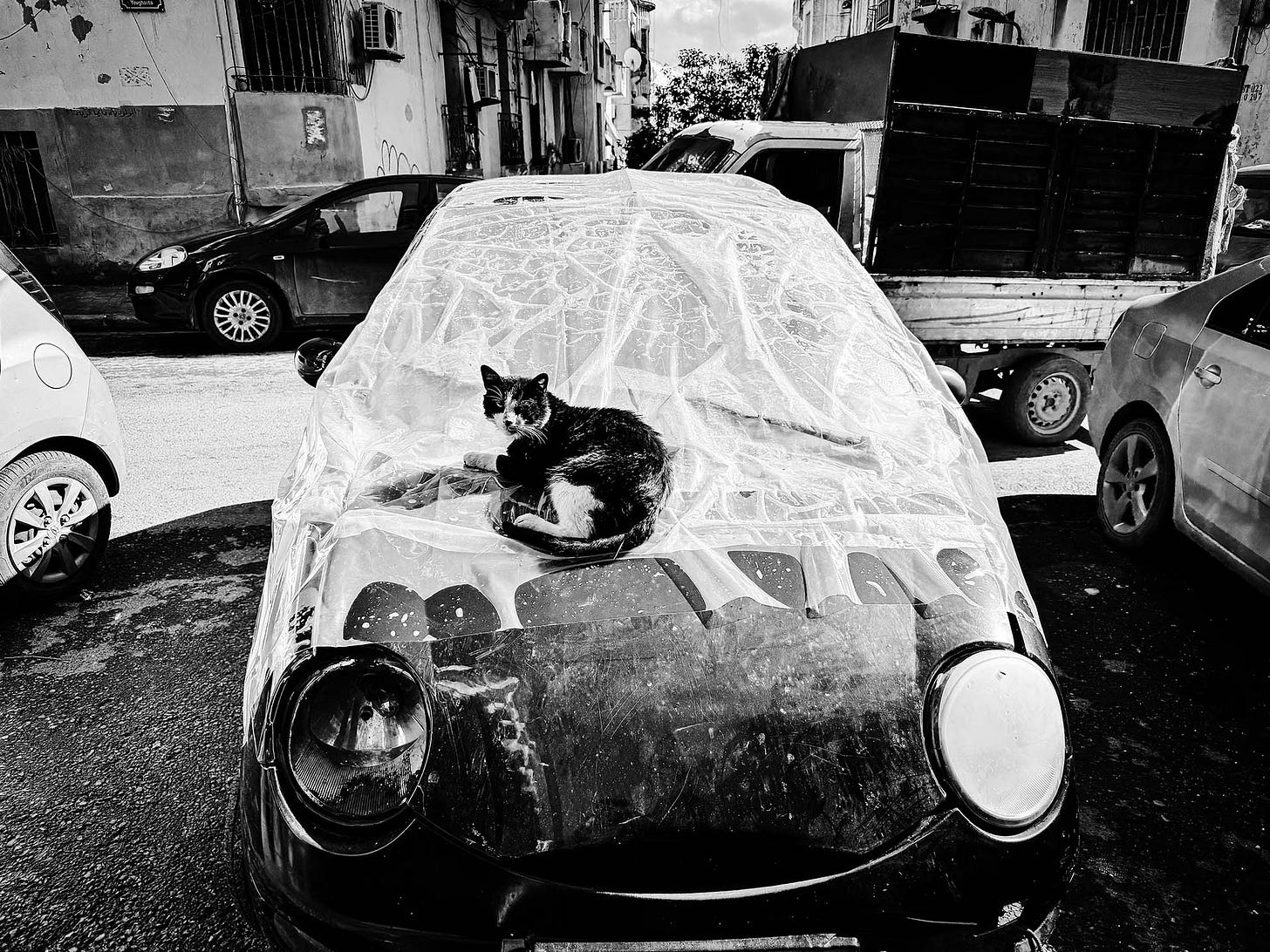
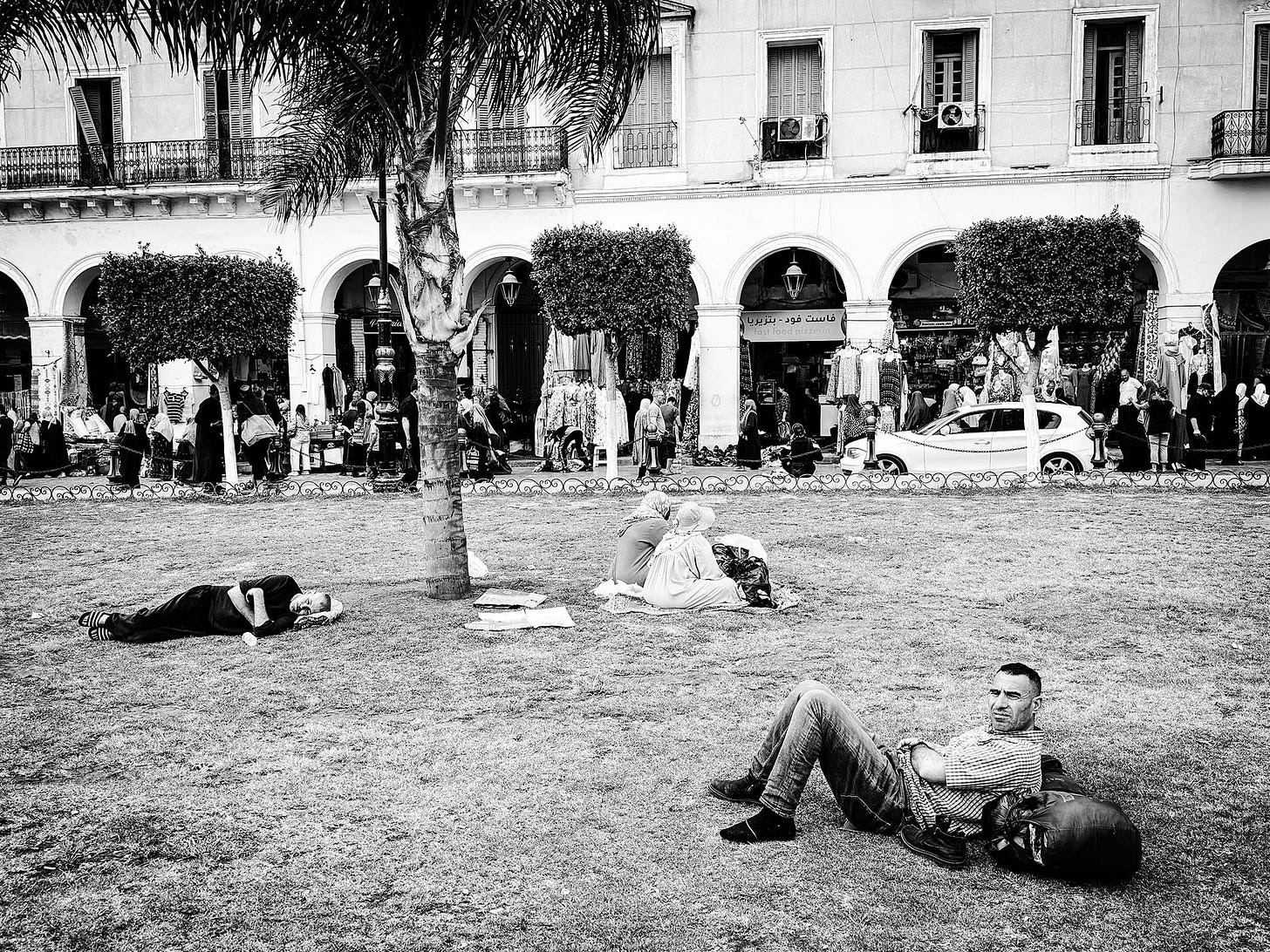
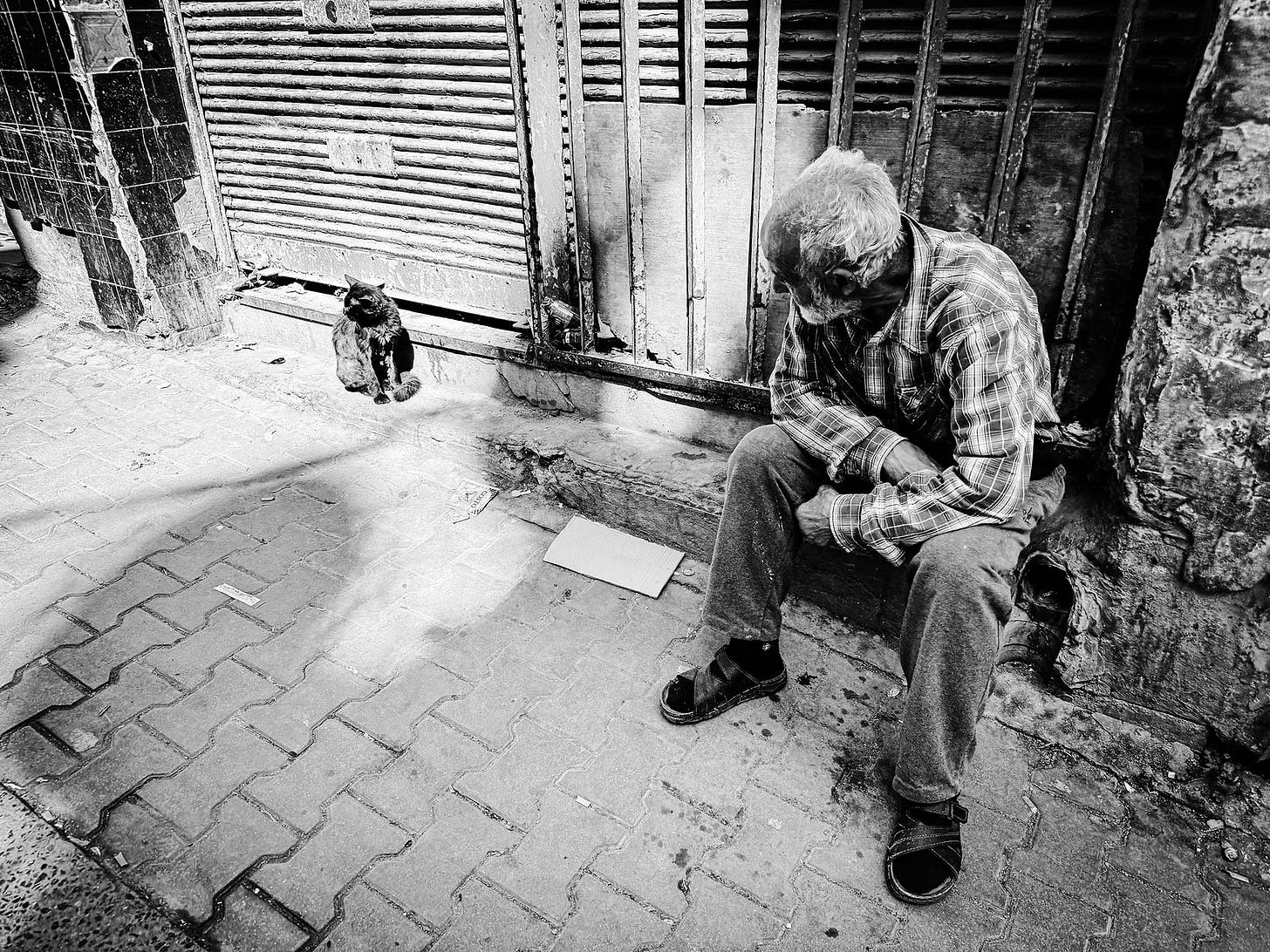
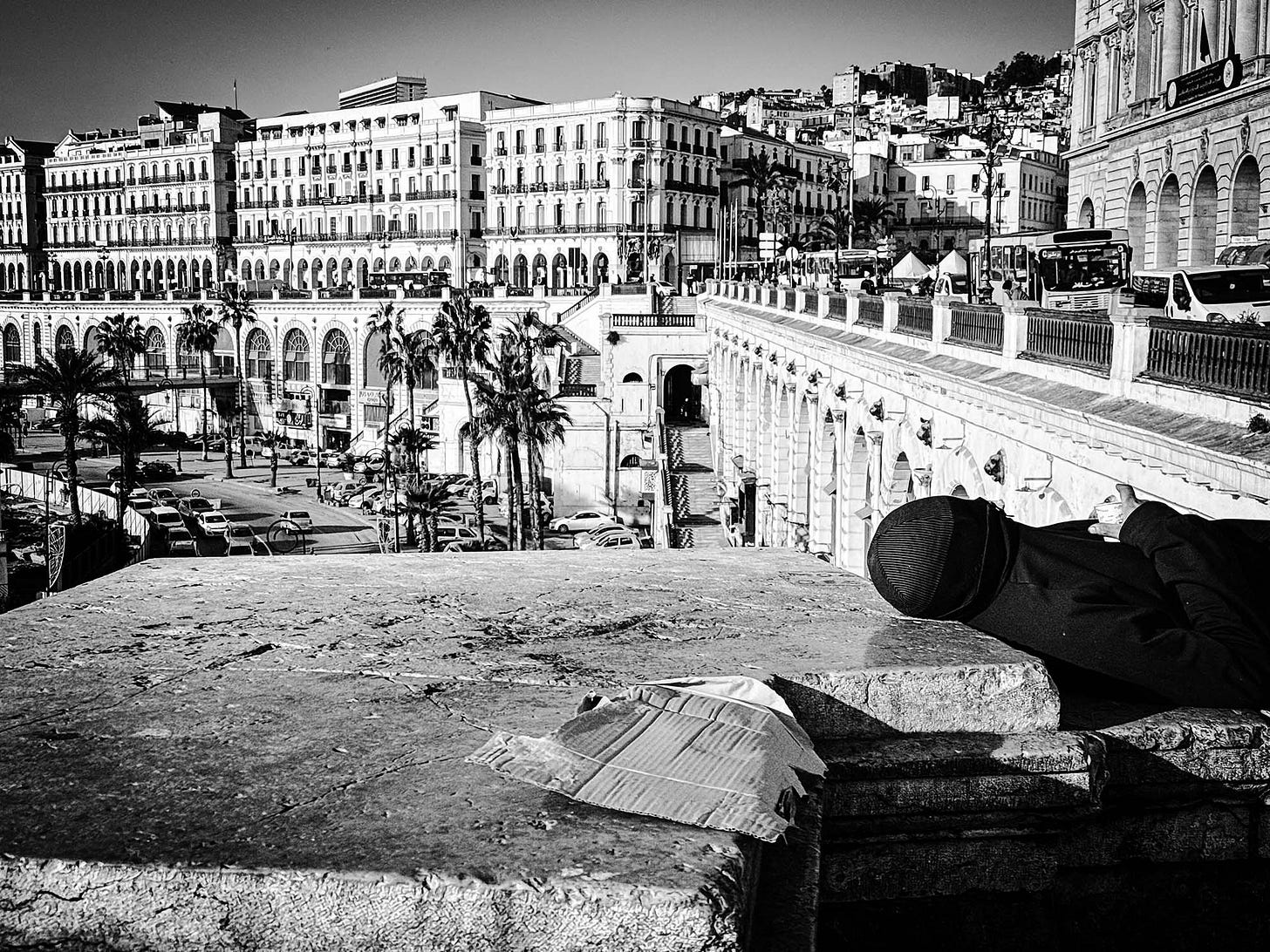
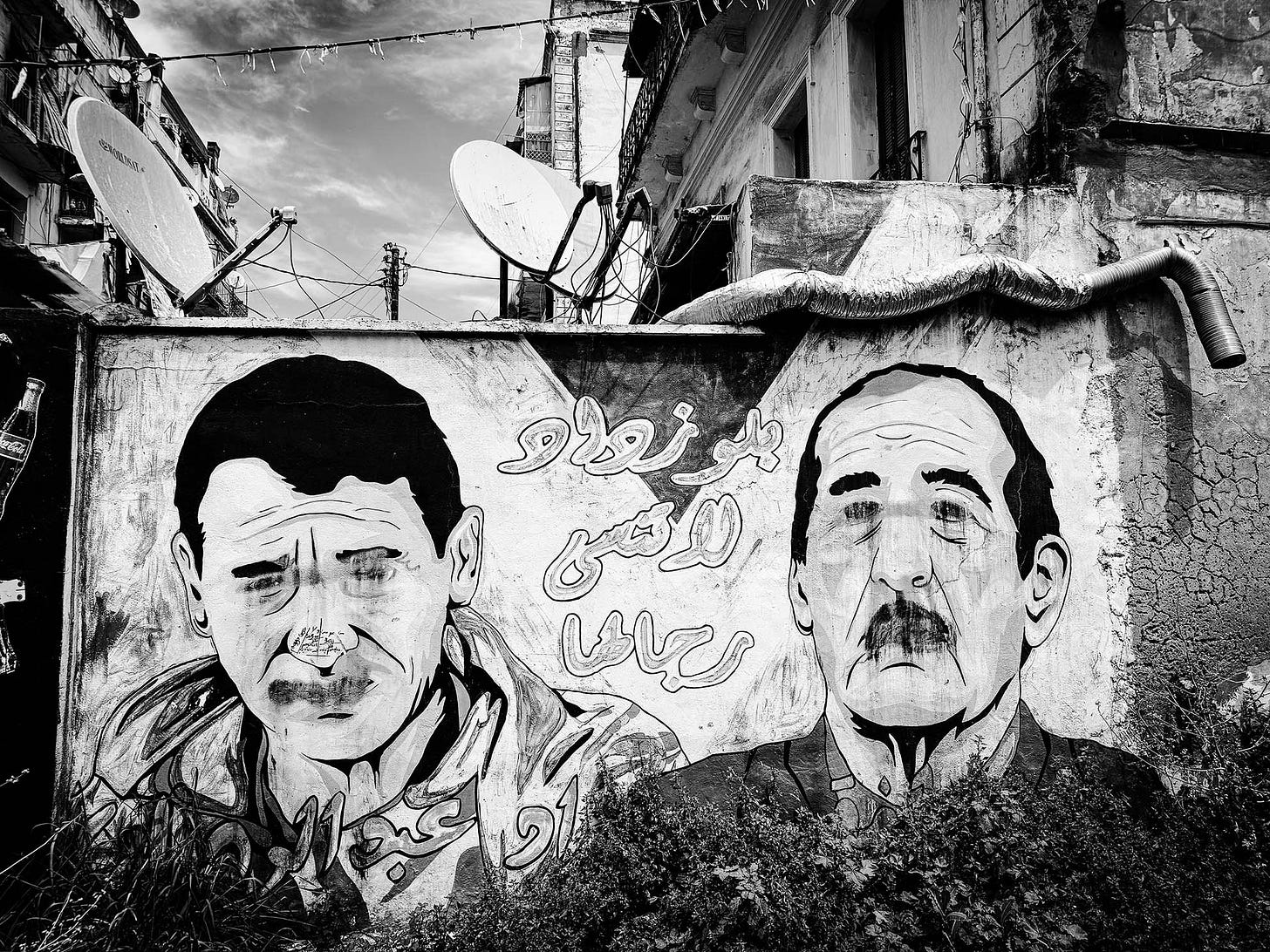

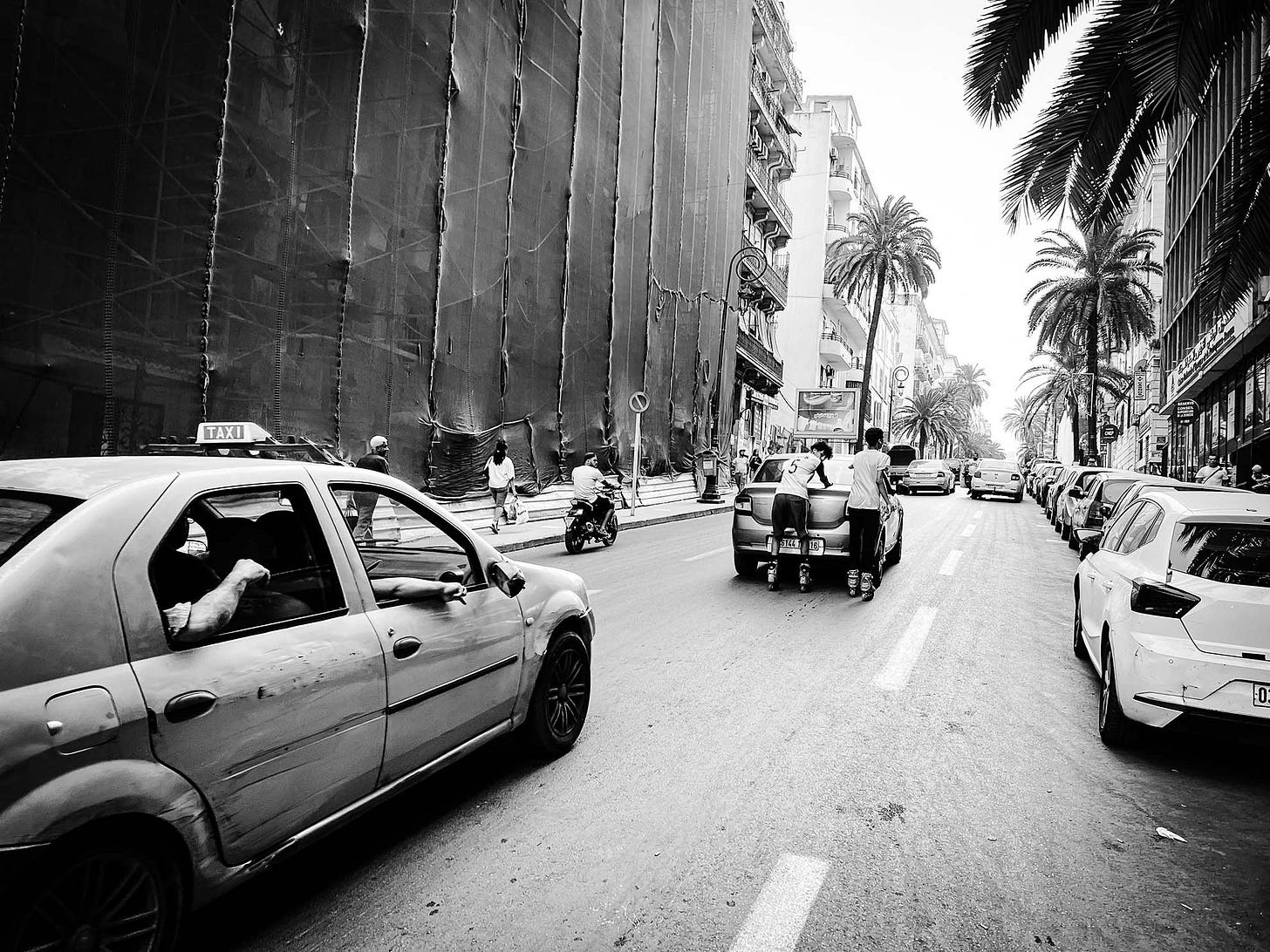
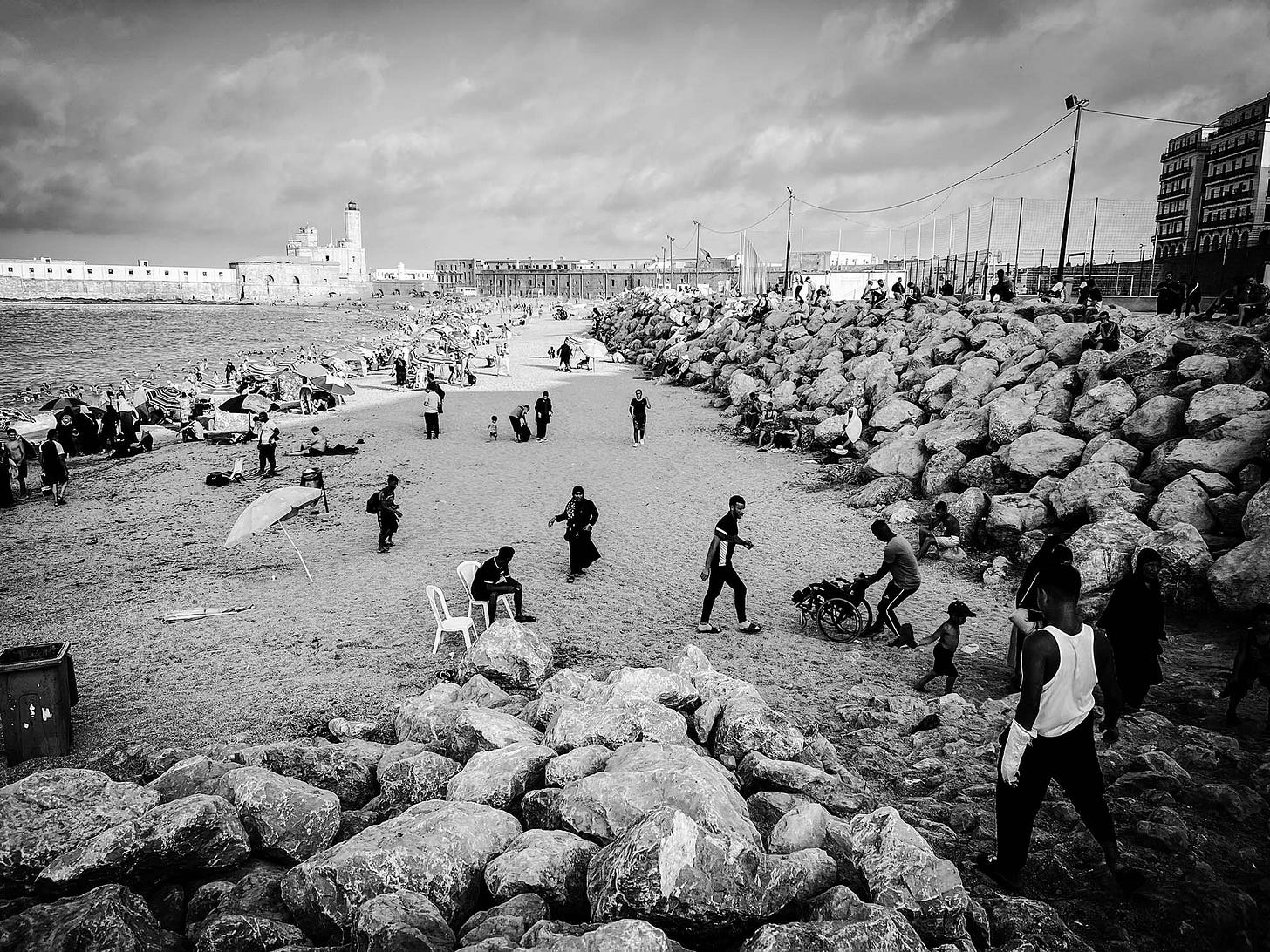

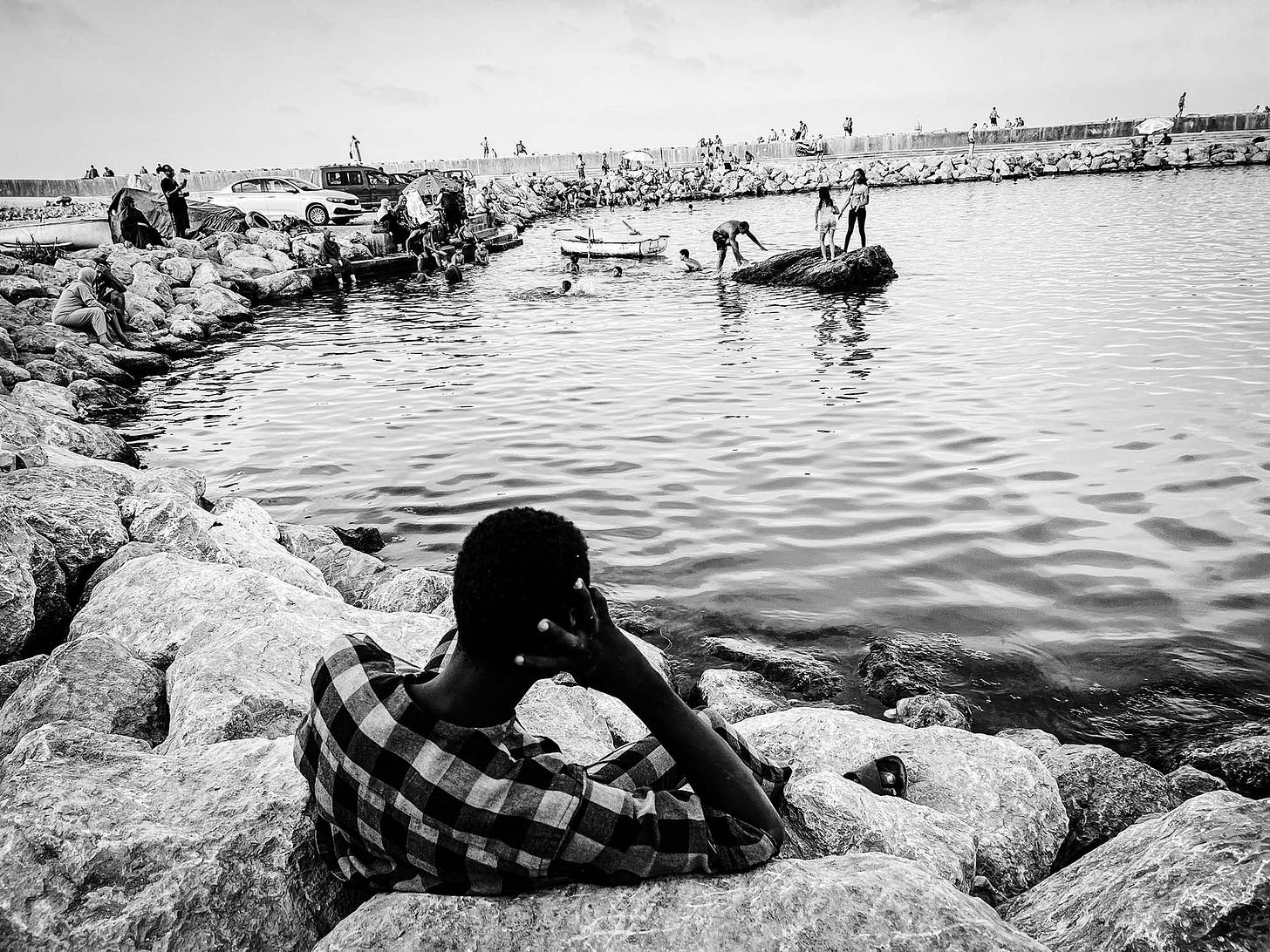
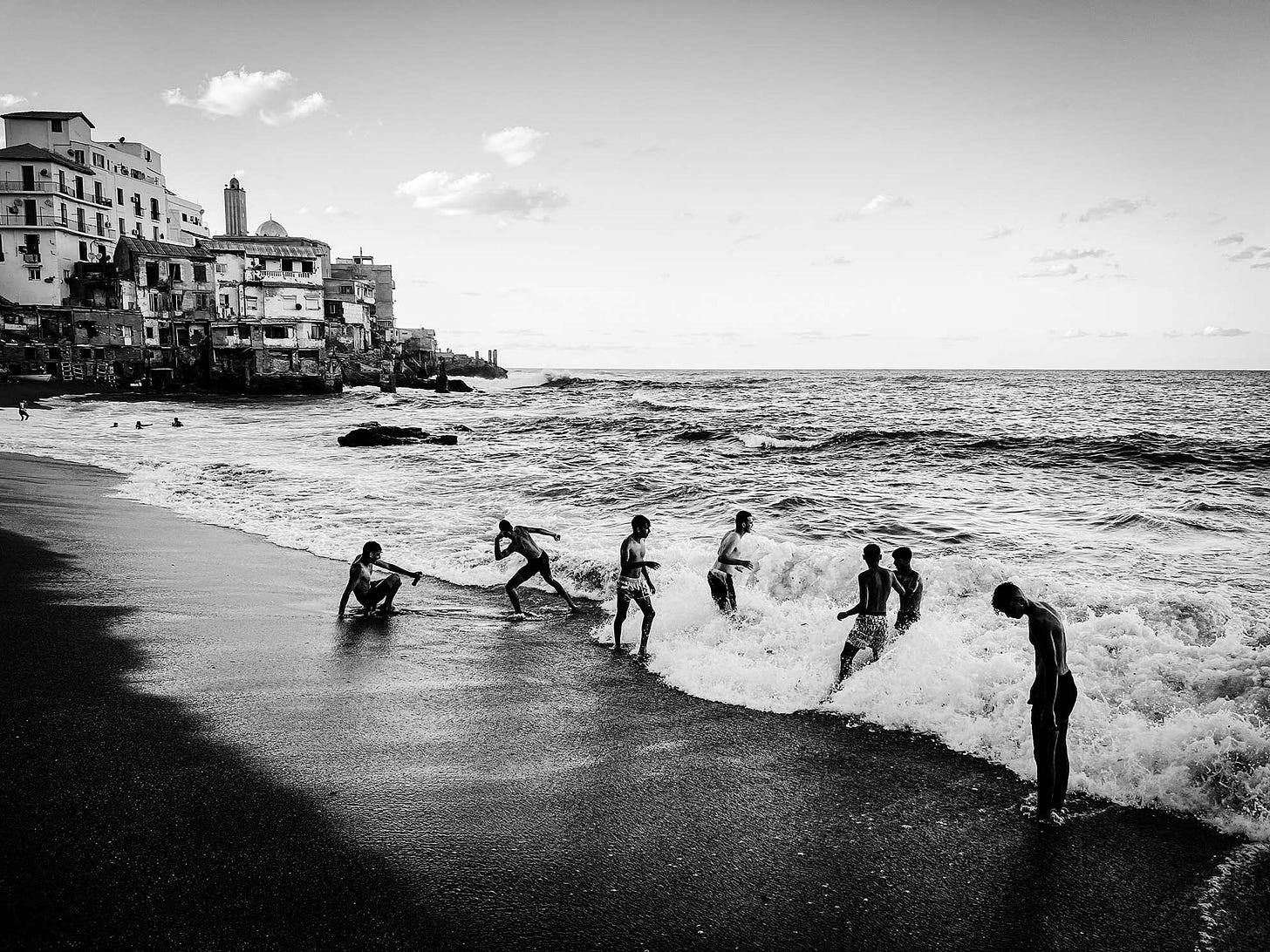
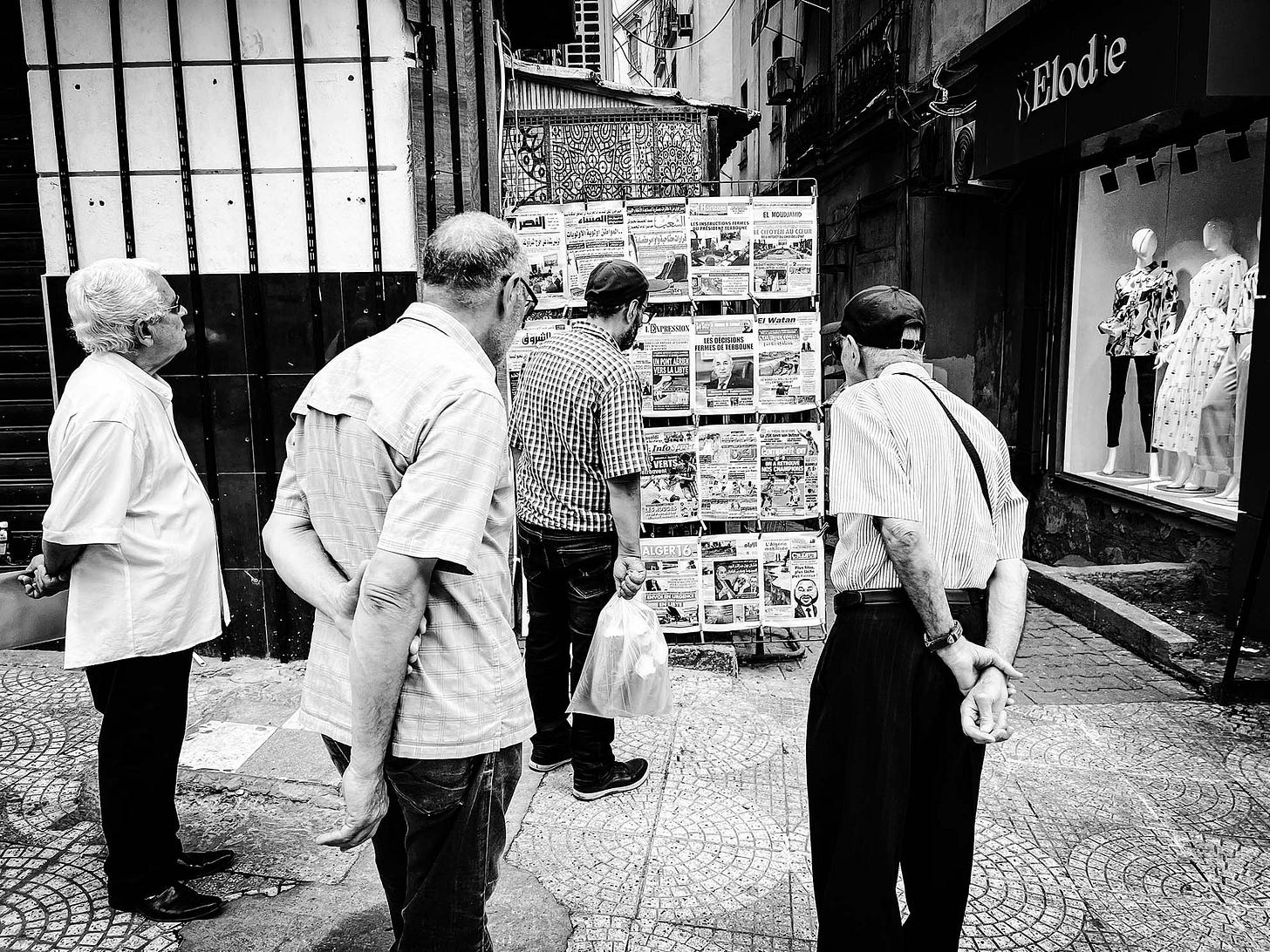
The city of my grandmother. Always in my heart.
Great photos.